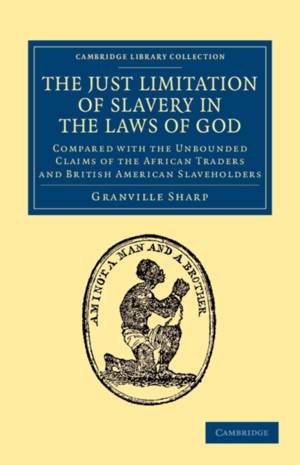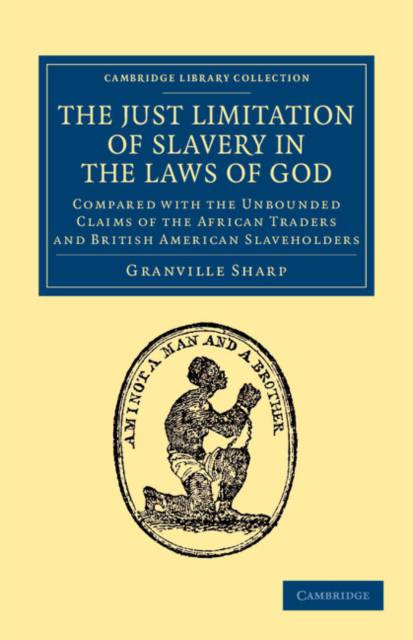
- Afhalen na 1 uur in een winkel met voorraad
- Gratis thuislevering in België vanaf € 30
- Ruim aanbod met 7 miljoen producten
- Afhalen na 1 uur in een winkel met voorraad
- Gratis thuislevering in België vanaf € 30
- Ruim aanbod met 7 miljoen producten
Zoeken
The Just Limitation of Slavery in the Laws of God
Compared with the Unbounded Claims of the African Traders and British American Slaveholders
Granville Sharp
€ 61,45
+ 122 punten
Omschrijving
The author and campaigner Granville Sharp (1735-1813) was born in Durham to a religious family. In 1765, a chance encounter with a slave, Jonathan Strong, sparked the serious interest in abolitionism that in due course saw him become a founding member of the London committee of the Society for the Abolition of the Slave Trade. Due in part to his efforts and writings, the anti-slavery movement in Britain gained public attention and became a more focused and organised campaign. This tract, originally published in 1776, is one of several anti-slavery works that Sharp produced in that year. A rigorous defence of liberty and of 'the honour of holy Scriptures', it is a riposte to the idea that slavery is sanctioned by God, citing the biblical doctrines of 'Thou shalt not oppress a stranger' and 'Love thy neighbour as thyself'. Also included are several appendices of material relating to the abolitionist cause.
Specificaties
Betrokkenen
- Auteur(s):
- Uitgeverij:
Inhoud
- Aantal bladzijden:
- 182
- Taal:
- Engels
- Reeks:
Eigenschappen
- Productcode (EAN):
- 9781108060158
- Verschijningsdatum:
- 6/06/2013
- Uitvoering:
- Paperback
- Formaat:
- Trade paperback (VS)
- Afmetingen:
- 140 mm x 216 mm
- Gewicht:
- 235 g

Alleen bij Standaard Boekhandel
+ 122 punten op je klantenkaart van Standaard Boekhandel
Beoordelingen
We publiceren alleen reviews die voldoen aan de voorwaarden voor reviews. Bekijk onze voorwaarden voor reviews.








